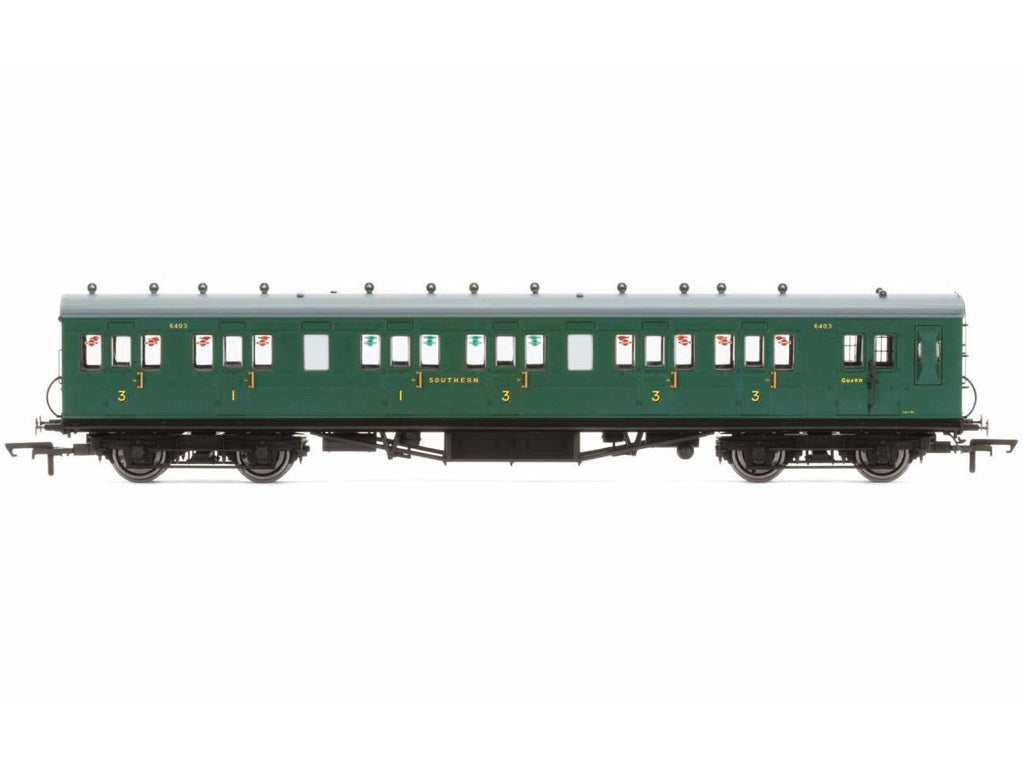You need to choose options for product.
-
 files/r4794.jpg
files/r4794.jpg
y 1934, the Southern Railway recognised that the short ex-LSWR stock was in need of some major attention as it was nearing the end of its working life. Much of it was built on wooden underframes, whilst some was still gas lit and so a program of refurbishment was proposed and undertaken under Works Order (HOO No.) L801 of March 1934 and Works Order (HOO No.) L852A of March 1935. The stock to diagrams 99 and 418 were created in 1935/1936 at Lancing Works, by taking the Composite body, cutting it and fitting to a Maunsell underframe. In the case of the Brakes, a guards van was grafted to one end. These were of a steel panel, which didn't quite match the finish of the rest of the wooden panel bodywork. The composites (to diagram 31) differ, in that the original body was cut into two sections and mounted at each end of the underframe, with a section being inserted comprising a single compartment, with two lavatories side by side. The defining feature of all these vehicles was the triangular section weatherboard that ran the length of the body, disguising the join (the body being narrower than the underframe).
Hornby R4794 SR, 58' Maunsell Rebuilt (Ex-LSWR 48'), Six Compartment Brake Composite, 6403 'Set 44' - Era 3
y 1934, the Southern Railway recognised that the short ex-LSWR stock was in need of some major attention as it was nearing the end of its working life. Much of it was built on wooden underframes, whilst some was still gas lit and so a program of refurbishment was proposed and undertaken under Works Order (HOO No.) L801 of March 1934 and Works Order (HOO No.) L852A of March 1935. The stock to diagrams 99 and 418 were created in 1935/1936 at Lancing Works, by taking the Composite body, cutting it and fitting to a Maunsell underframe. In the case of the Brakes, a guards van was grafted to one end. These were of a steel panel, which didn't quite match the finish of the rest of the wooden panel bodywork. The composites (to diagram 31) differ, in that the original body was cut into two sections and mounted at each end of the underframe, with a section being inserted comprising a single compartment, with two lavatories side by side. The defining feature of all these vehicles was the triangular section weatherboard that ran the length of the body, disguising the join (the body being narrower than the underframe).
Flexible payment terms now available through Clearpay, Klarna and PayPal. Just select your desired payment method at the checkout stage.
Couldn't load pickup availability
Share


